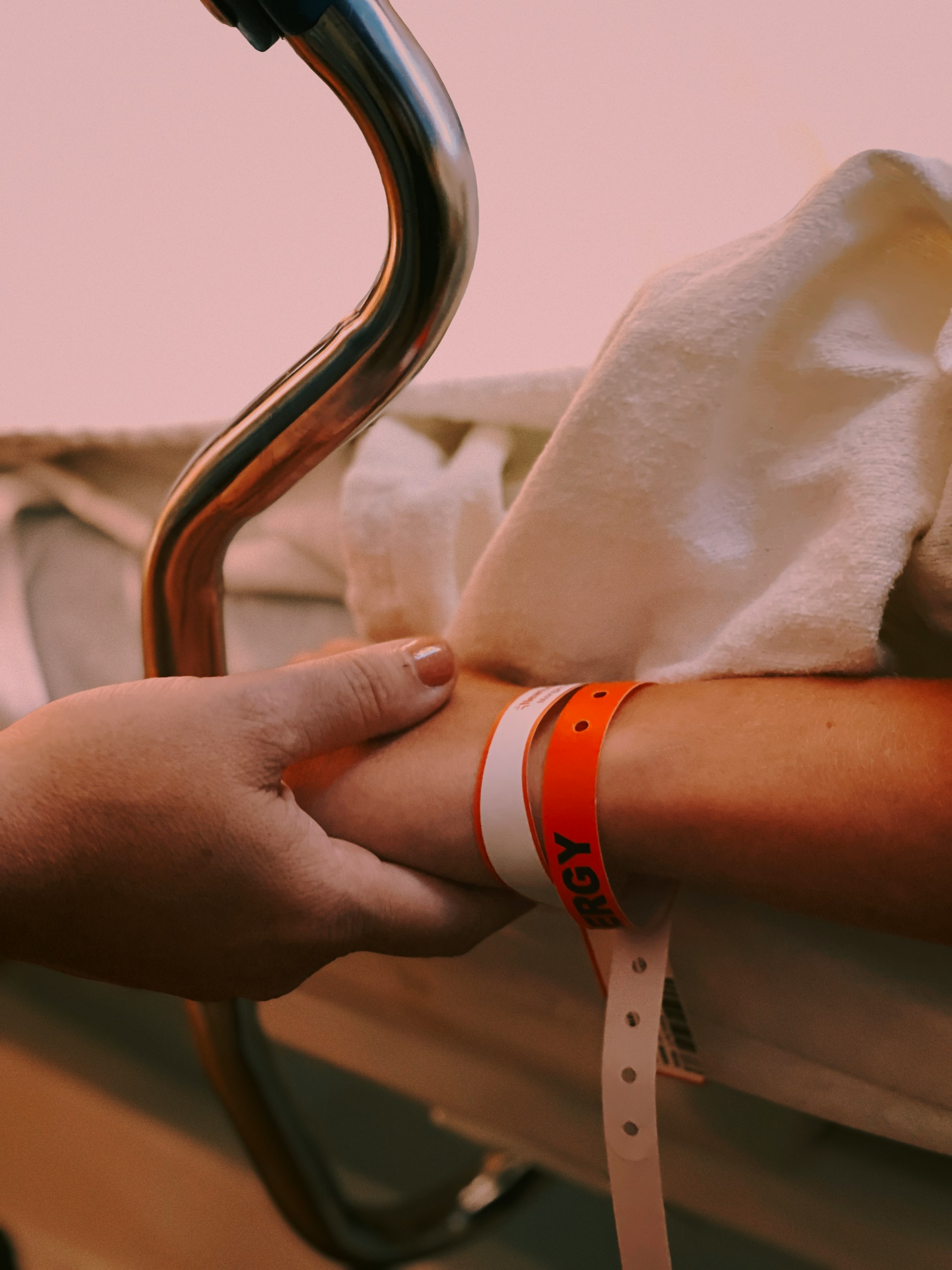Can Diapers Cause UTI in Adults?
Can adult diapers cause UTIs? Explore how improper use of incontinence products may increase the risk of urinary tract infections. Learn preventive tips, including proper hygiene and diaper care, to minimize UTI risk and promote better health for adults using incontinence products.

Are you aware of the signs and symptoms of urinary tract infection?
When it comes to urinary tract infections (UTIs), it's important for everyone to be aware of the potential risks, regardless of age. Although UTIs are commonly associated with women, they can also affect men and adults of all ages.
In this article, we will be exploring the question of whether diapers can cause UTIs in adults. We will discuss what a UTI is, the potential risks of using diapers, the symptoms and diagnosis of a UTI, available treatments, and preventive measures that can be taken.
Whether you're concerned about your own health or looking for ways to support someone in your life who needs help managing a UTI, this guide is here to provide you with the information and resources you need.
What is a Urinary Tract Infection?
A urinary tract infection (UTI) is a bacterial infection of the urinary system that includes the kidneys, ureters, bladder, and urethra. UTIs are caused by bacteria entering the urinary system, typically through the urethra. The infection can lead to pain and discomfort, as well as other more serious complications if left untreated.
UTIs can occur in both men and women, but due to differences in anatomy, they are much more common in women. Signs and symptoms of a UTI include a strong and persistent urge to urinate, even when there is little or no urine present; a burning sensation during urination; cloudy, dark, or bloody urine; and pelvic pain in women.
Causes of a UTI
Urinary tract infections (UTIs) occur when bacteria enter the urinary system and multiply. The most common culprit behind these infections is Escherichia coli (E. coli), a type of bacteria that typically resides in the intestines. However, other bacteria such as Klebsiella, Pseudomonas, and Enterococcus can also be responsible for UTIs.
In addition to bacterial infections, several factors can contribute to the development of UTIs. Urinary incontinence, for instance, can create a moist environment that fosters bacterial growth. The use of catheters, which can introduce bacteria directly into the urinary tract, is another significant risk factor. Underlying medical conditions like diabetes or kidney disease can also make individuals more susceptible to UTIs. Hormonal changes, particularly those experienced during menopause, can alter the urinary tract’s environment, making it easier for bacteria to thrive. Lastly, age-related changes in the urinary tract can increase the risk of infection, particularly in older adults.
Understanding these causes can help in taking preventive measures to reduce the risk of developing a UTI.
Can Wearing Adult Diapers Cause UTI in Adults?
Using diapers may increase the risk of developing urinary tract infections (UTIs) in adults. A UTI is an infection that occurs when bacteria enters the urinary tract and affects the bladder, urethra, kidneys, or other parts of the system. In some cases, wearing adult diapers can increase the risk of catching a UTI as it creates the perfect environment for bacteria to grow.
The moisture that diapers provide can make it easier for bacteria to enter the urinary system and cause infection. Any type of diaper—including cloth, disposable, training pants, and adult briefs—can provide an ideal growth environment for bacteria if not changed frequently enough.
Proper hygiene practices, such as regular diaper changes and thorough cleaning, are essential to minimize the risk of infection.
Older adults and those with weakened immune systems are most at risk of developing a UTI from using diapers. Additionally, people who do not properly clean themselves after using the bathroom while wearing a diaper may also be more susceptible to UTIs.
Diaper-related UTIs are incredibly common, but they can have serious complications if they are not diagnosed and treated quickly. Left untreated, a UTI can lead to a kidney infection, which can lead to sepsis, a life-threatening condition. Other possible complications include bladder damage and increased risk of premature delivery in pregnant women. It is important to seek medical attention right away if you think you may have a UTI.
When it comes to UTIs, prevention is always the best approach. Taking steps to monitor your symptoms and reduce your risk of getting a UTI is much better than waiting for serious complications to occur. Wearing breathable underwear and avoiding tight-fitting clothing can help you stay comfortable and reduce the chance of getting a UTI. Additionally, regularly drinking fluids and using the bathroom as soon as you feel the urge can help flush out bacteria before it has a chance to attach to your urinary tract.
Risk Factors for UTIs in Adults
Certain individuals are more susceptible to developing UTIs due to various risk factors. Women, especially those who are postmenopausal or have a history of UTIs, are at a higher risk due to anatomical differences and hormonal changes. Older adults are also more prone to UTIs because of age-related changes in the urinary tract and a potential decline in immune function.
Individuals with underlying medical conditions, such as diabetes or kidney disease, are at an increased risk as these conditions can affect the body’s ability to fight off infections. People with urinary incontinence or those who use catheters are also more likely to develop UTIs due to the increased likelihood of bacterial entry into the urinary tract. Additionally, individuals with a weakened immune system, such as those with HIV/AIDS or undergoing chemotherapy, are more vulnerable to infections, including UTIs.
Recognizing these risk factors is crucial for taking preventive measures and seeking timely medical attention if symptoms of a UTI arise.
Symptoms and Diagnosis of a UTI
Urinary tract infections (UTIs) are caused by bacteria entering the urinary system, and UTI symptoms can vary from mild to severe. These infections can be mild or severe, and symptoms often vary depending on the individual. If you believe you may have a UTI, it’s important to speak with your doctor for proper diagnosis and treatment.
Common symptoms of a UTI include:
- Pain or burning sensation when urinating
- An urge to urinate more frequently than usual
- Cloudy, bloody, or strong-smelling urine
- Pain or pressure in the lower abdomen
- Fever or chills
If you experience any of these symptoms, see your doctor right away. A medical professional will be able to properly diagnose a UTI and provide treatment options.
Treatments for UTI
If you have a urinary tract infection, it is important to get an accurate diagnosis and begin treatment as soon as possible. The most common treatments for UTIs are antibiotics, but there are also other remedies that may help alleviate the symptoms while you wait to start on antibiotics.
Antibiotics are designed to help fight off the bacteria that are causing the infection, and your doctor may prescribe a single dose of antibiotics or a course stretching over several weeks. Your doctor will likely recommend that you drink plenty of fluids and use a heating pad or hot water bottle on your abdomen to help ease discomfort.
Alternative treatments for UTI include:
- Drinking unsweetened cranberry juice or taking cranberry supplements as a preventative measure.
- Taking a probiotic supplement to restore beneficial bacteria in the urinary tract.
- Using essential oils such as tea tree or lavender oil to help alleviate the symptoms of a UTI.
- Herbs such as goldenseal, dandelion root, and marshmallow root to help reduce inflammation.
It is important to note that these alternative treatments are not a substitute for antibiotics and should be used in addition to prescribed medications. Additionally, consult with your doctor before starting any type of alternative treatment.
Managing Urinary Incontinence
Urinary incontinence can significantly increase the risk of developing UTIs, making it essential to manage this condition effectively. One of the primary strategies for managing urinary incontinence is the use of adult diapers or incontinence pads. These products can help contain leaks and keep the skin dry, reducing the risk of bacterial growth.
Practicing good hygiene is also crucial. This includes changing incontinence products regularly and washing hands before and after toileting to prevent the spread of bacteria. Staying hydrated is important as well, as it helps flush out bacteria from the urinary tract. Avoiding certain foods and drinks that can irritate the bladder, such as caffeine and alcohol, can also be beneficial.
Engaging in pelvic floor exercises can strengthen the muscles that support the bladder, helping to reduce incontinence symptoms. These exercises, often referred to as Kegel exercises, can be particularly effective when done consistently.
By implementing these strategies, individuals can manage urinary incontinence more effectively and reduce their risk of developing UTIs.
Recurrent Urinary Tract Infections
Recurrent UTIs are a common issue, particularly among women. These repeated infections can be caused by various factors, including bacterial persistence in the urinary tract, underlying medical conditions like kidney disease or diabetes, and hormonal changes such as those experienced during menopause. Age-related changes in the urinary tract and poor hygiene practices can also contribute to recurrent UTIs.
Preventing recurrent UTIs requires a comprehensive approach. Practicing good hygiene, such as changing incontinence products regularly and washing hands before and after toileting, is essential. Staying hydrated helps flush out bacteria from the urinary tract, reducing the risk of infection. Avoiding certain foods and drinks that can irritate the bladder, such as spicy foods and alcohol, can also be helpful.
Engaging in pelvic floor exercises to strengthen the muscles that support the bladder can reduce the likelihood of recurrent infections. In some cases, preventive measures such as low-dose antibiotic prophylaxis or alternative treatments tailored to the individual’s needs may be recommended by a healthcare provider.
By following these strategies, individuals can reduce their risk of recurrent UTIs and maintain better urinary health.
Catheter-Associated Urinary Tract Infections
Catheter-associated urinary tract infections (CAUTIs) are a common problem in healthcare settings. These infections can occur when bacteria colonize the catheter, often due to poor insertion and maintenance techniques or inadequate hand hygiene practices. Insufficient use of antimicrobial prophylaxis can also contribute to the development of CAUTIs.
Preventing CAUTIs requires a comprehensive approach. Implementing strict guidelines for catheter insertion, maintenance, and removal is crucial. Practicing good hygiene, such as washing hands before and after handling the catheter, can significantly reduce the risk of infection. Using antimicrobial prophylaxis, such as antibiotics or antiseptics, can help prevent bacterial colonization of the catheter.
Regularly monitoring for signs and symptoms of UTIs, such as fever, chills, or cloudy urine, is essential for early detection and treatment. By following these preventive measures, healthcare providers can reduce the incidence of CAUTIs and improve patient outcomes.
By understanding the causes, risk factors, and preventive measures for UTIs, individuals can take proactive steps to maintain their urinary health and reduce the risk of infection.
Prevention Methods for Recurrent Urinary Tract Infections in Adults
UTIs can be unpleasant and uncomfortable, so prevention is key. Fortunately, there are a few simple steps you can take to reduce your chances of experiencing a UTI when wearing diapers as an adult.
- Increase your fluid intake, especially water, throughout the day.
- Wipe from front to back after using the bathrooms to avoid transferring bacteria.
- Change diapers regularly (as needed or indicated by the manufacturer).
- Limit the use of diapers, when possible, to reduce the risk of developing a UTI.
- Practice good hygiene, including washing your hands often and bathing regularly.
- Practice proper hygiene practices, including regular diaper changes and thorough cleaning, to minimize the risk of infection.
By following these preventive guidelines, you can decrease the likelihood of developing a UTI related to diapers.
Taking Care of Yourself with Proper Hygiene Practices
Diapers are a necessary and helpful tool for adults with medical conditions or other issues that make it difficult to take frequent bathroom breaks. However, not taking proper care of yourself in regards to your diaper use can lead to many other problems, including an increased potential for UTI. To reduce the chances of developing a UTI, there are several steps you can take while wearing a diaper.
- Change your diaper regularly. This is one of the most important steps for preventing UTI. Most experts suggest changing your diaper every three to four hours, depending on how much urine or stool has been discharged.
- Use only absorbent products that are specifically designed for urinary incontinence. Avoid regular baby diapers, which are made to absorb urine but are not designed for adult use.
- Wipe from the front to the back with each diaper change and avoid harsh soaps and scented wipes that can irritate the skin.
- Make sure your skin is completely dry before closing the diaper. If your skin is wet, it can make it easier for bacteria to grow and cause a UTI.
In addition to changing the diaper regularly, adults should aim to drink plenty of water and other fluids throughout the day. This will help flush out any bacteria that may be present in the urinary tract and reduce the risk of infection. Regular exercise can also be beneficial as it can help stimulate the flow of urine and flush out any bacteria present in the bladder.
Adult diapers can be a useful tool for those with medical issues or who need extra protection, but it is important to take proper care of yourself and be aware of the risks and signs of UTI when using them. With the right steps, you can stay safe and comfortable while wearing a diaper.
When to See a Doctor
If you suspect that you or someone you know has an urinary tract infection (UTI) it is important to seek medical attention right away. Some UTIs, even those caused by wearing diapers, can quickly lead to more serious infections if not treated quickly.
The signs and symptoms of a serious UTI may include fever, chills, pain in the abdomen or lower back, and cloudy or bloody urine. If any of these symptoms are present, it is important to see a doctor right away. A doctor can determine if a UTI is indeed present and provide appropriate treatment to help resolve it quickly.
It is also important to see a doctor if the UTI does not improve or worsens after several days of self-treatment or home remedies. A doctor can diagnose whether an underlying condition, such as a blockage in the urinary tract, may be causing the UTI and prescribe the appropriate medications to treat it.
Supporting Someone with a UTI
Having a urinary tract infection (UTI) can be difficult to manage for anyone. If you know someone who is dealing with a UTI, there are some simple ways you can help support them during this difficult time.
- Encourage Them to Get Treatment: A UTI requires treatment to avoid more serious complications in the future, so encourage your loved one to see a doctor if they haven't already.
- Offer Practical Assistance: Offer to help out with tasks that may be difficult for them. This could include taking care of household chores, grocery shopping, or offering to drive them to medical appointments.
- Listen and Reassure: Offer to listen to them if they just need someone to talk to. Remind them that while it can be worrisome, UTIs are relatively common and can be treated by a doctor.
- Educate Yourself: Before you make any suggestions or offer advice, educate yourself about UTIs and their treatments. This will ensure that you are giving your loved one accurate information.
Having someone to support you can be a great source of comfort during a UTI. By showing your care and willingness to help, you can make a big difference in the life of someone with a UTI.
Summary and Takeaway
In this post, we discussed the question of whether diapers can cause UTI in adults and what steps one should take if they suspect a UTI. To summarize, diapers can indeed increase an adult's risk for developing a UTI, as the bacteria required to cause a UTI can be present in the diaper itself. Symptoms include pain when urinating and a feeling of needing to go more often than usual. It's important to recognize these symptoms early and get medical attention if needed.
Fortunately, there are several prevention strategies to reduce the risk of developing a UTI. These include regular voiding of the bladder, drinking plenty of fluids, and limiting the use of diapers when possible. It's also important to take care of yourself and wear comfortable clothing while wearing them. And finally, it's a good idea to be aware of the symptoms of a serious UTI so you know when it's time to seek professional help.
By following the tips outlined here, adults can reduce their risk of developing a UTI from wearing diapers. If you or someone close to you has a UTI, seek medical care right away. Remember that with a few simple steps, you can keep yourself healthy and comfortable when wearing diapers.
Feeling overwhelmed by UTI prevention and the use of diapers? Don't worry! The good news is that UTIs can be prevented and treated with proper hygiene and knowledge. Through taking the necessary measures and preventive steps, you can lower your risk of developing a urinary tract infection. Be sure to stay hydrated and limit the use of diapers when possible, as this can reduce your risk of getting a UTI. If you do experience any symptoms, it's important to seek treatment from a healthcare provider right away. Additionally, there are many supportive resources available to help you or someone you know who is dealing with a UTI.
At the end of the day, it's important to remember that you have the power to keep yourself healthy and safe. Don't let UTIs stop you from living your life - take the steps needed to manage your health and stay informed about UTI prevention methods.
You might also like this article:













